QuickBooks Online is a cloud-based application that may deliver slower performance due to various factors listed below.
- Browser problem – browser cookies and cache, compatibility issue, outdated version
- Slow internet connection speeds
- System constraints
- Massive data
- Outdated plugins
- Excessive usage of system memory and resources
Follow the suggestions given below to fix the slow QuickBooks Online performance:
- Check your computer or device’s processing power
- Internet speed (bandwidth)
- Hard drive’s storage space
- Ensuring that the operating system is updated.
Reasons Behind QuickBooks Running Very Slow
QuickBooks Online often runs slowly due to a blend of browser-related issues (such as accumulated cache, cookies, incompatible or outdated browsers, and heavy extensions), unstable or low-speed internet connectivity, misconfigured firewalls, outdated QuickBooks versions, underperforming system hardware, excessive background processes, and problems with large or corrupted company files—all of which disrupt data flow and resource allocation, ultimately leading to lags, freezing, or unresponsiveness; clearing browser data, updating system and QBO, improving internet stability, and minimizing resource-heavy processes typically help resolve these slowdowns quickly. To help you fix the issue, here are the key causes you should check first:
The reason behind QuickBooks running Very slow are:
- Outdated version of QuickBooks: You are using an outdated version of QuickBooks online.
- Unable to Meet the Minimum System Requirements: The system requirements of the machine are not up to the mark and do not meet the minimum requirements set by QuickBooks Online.
- Exceeding the Maximum File Size: You have exceeded the maximum allowed size for your company’s files set by QuickBooks Online.
- Damaged QBWUSER.INI File: Another probable reason for QuickBooks Online’s slow download can be regarded as damage caused to or missing QBWUSER.INI file in your system.
- Invalid Configuration: Improper configuration of firewall settings, which is limiting the functioning of QuickBooks online properly.
- Corrupted Files: Some of the software files of QuickBooks installation files are corrupted due to some reason.
- Corrupted Hard Drive: Using a corrupted hard drive can also be the reason behind QuickBooks online slow performance.
- Corrupted Windows: Using a corrupted Windows system can also be the reason behind QuickBooks online slow performance.
Note: Intuit recommends not to use QuickBooks Online with Incognito (Private Browsing) mode.
What are the Challenges of QuickBooks Online Slow?
QuickBooks Online’s slow performance can be due to a browser problem, massive data, slow internet connection, or system constraints. Factors such as cache and your internet have options that can be adjusted to increase speed and efficiency.
Several challenges might occur when users face QBO slow issues on their system.
Here are some of the complications that users might face when dealing with QuickBooks Online slow:
- Users trying to reinstall QuickBooks might face an error on the same
- You won’t be able to update the company files
- Users will fail to recreate organisational data
- Restrictions when trying to relocate or copy the data file
- Hindrance in backup might be faced as a link to the data file will not be found
- QuickBooks client computer will not be able to locate the data folder on your computer
- Users will face performance issues when using QuickBooks multi-user mode.
- Failure to print PDF files
Essential Tips for Resolving QuickBooks Running Slow Issue
Users can attempt several quick fixes to resolve the issue of QuickBooks Online (QBO) running slow.
The sections below highlight the quick fixes for each of the issues mentioned above causing QuickBooks to run slow on your system.
| Error Causes | Solutions |
|---|---|
| You are using an outdated version of QuickBooks. | Check for the latest version of QuickBooks from within the application. Install the latest version if available and check if the issue is resolved. |
| You are not using a system that meets the minimum requirements put forth by the developer of QuickBooks. | To resolve this issue, check the minimum requirements and upgrade the hardware as mentioned. |
| You have exceeded the maximum permitted file size by QuickBooks online. | Verify the company file size that has been allocated. If it exceeds, perform necessary fixes to reduce the file size. |
| QBWUSER.INI is missing or corrupted. | Check for the concerned file in your system and relaunch QuickBooks Online. |
| Inaccurate setup of firewall settings, restricting the functioning of QuickBooks Online | Check Windows firewall settings and see if it limits any functional aspect of QuickBooks Online. |
| Damaged or corrupted QuickBooks online file. | Use QuickBooks to verify or rebuild Data utility to recover or repair corrupted files of QuickBooks online. |
| Use of a corrupted hard drive. | Create a backup of your QuickBooks Online files, then change the hard drive. Installing a new hard drive is recommended to fix QuickBooks Online’s slow issues on your system. |
| Using a corrupted window. | Create a backup of the files of QuickBooks and online and try reinstalling Windows and its components. |
How to Resolve QuickBooks Online Running Slow Problem?
Troubleshooting techniques can help with fixing QuickBooks online slow errors. Follow all the necessary steps mentioned below to speed up your QuickBooks Online:
Note: Ensure your operating system is up to date and you meet all the necessary System Requirements for QuickBooks Online.
Solution 1: Consider Upgrading your System Specifications to Meet the Requirements Set by QuickBooks
- Step: Upgrade your existing hard drive with a Solid State Drive
- Step: You must ensure that you have a 64-bit computer with a clock speed of at least 2.2 GHz
- Step: Install a RAM of 8 GB or above
- Step: Install a network connection of a minimum of 7,500 or above.
Solution 2: Updating QuickBooks to its Latest Version
The first step towards troubleshooting and resolving QuickBooks Online Slow error for Mac or Windows is to update QuickBooks to its latest version.
Users can follow the below-mentioned steps to update QuickBooks Online to its latest version:

- Step: Visit the Update section available in QuickBooks Online
- Step: Choose your product
- Step: Upon selecting the desired product, click on update and then download the latest file version
- Step: Conclude the process by selecting Setup Automatic Updates to allow QuickBooks to install updates automatically in the future.
Solution 3: Rename QBWUSER.INI to Check if the File is Corrupted or Not
The second troubleshooting approach to fix QuickBooks online slow to load is to check and rename the QBWUSER.INI file.
Follow the steps below to fix this and resolve the QuickBooks online Slow issue:
- Step: Press the Windows+E button on your keyboard to open the file manager on your Desktop
- Step: Open the systems folder, i.e., C drive, and then follow: C:\ ProgramData\ Intuit \ QuickBooks folder
- Step: Make sure that you have enabled the option to display Windows Hidden Files on your system
- Step: Locate QBWUSER.INI on the source folder of QuickBooks and the right click on the folder
- Step: Click on Rename, and rename the file, concluding it with OLD
- Step: Test QuickBooks by relaunching the application
- Step: If the QuickBooks Online Slow issue persists, follow the succeeding troubleshooting approaches.
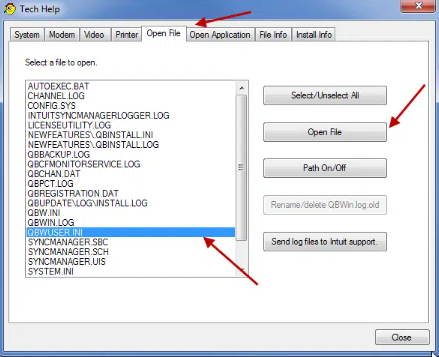
Solution 4: Consider Repairing Damaged or Corrupt Files
Users can install the QuickBooks Verify/Rebuild Data utility to check and repair damaged or corrupted files.
Here’s how to fix the damaged or corrupted file by performing the verify and rebuild tools:
- Step: Click the File menu.
- Step: Under Utilities, select Rebuild Data.
- Step: On the QuickBooks Information window, select OK.
- Step: When finish, click OK.
Solution 5: Verifying the Company File Size Allocated or Permitted by QuickBooks Online
The fourth step concerned in the process of resolving issues in regards to QuickBooks Online functioning slowly on your system is to verify the company file size.
Users can follow the below-mentioned approach to check and verify the company file size:
- Step: Navigate to the QuickBooks company file folder and right-click on the company file
- Step: Check for file size by clicking on Properties
- Step: In case you are using QuickBooks Pro and the concerned organization’s file is larger than 150 MB, you can use QuickBooks Condense Data Utility to reduce the file size
- Step: In case an individual is using QuickBooks Enterprise and the concerned company’s file size exceeds 1 GB, they can follow the above procedure to reduce their file size
- Step: Find and click on the file tab on the top menu bar and then click Condense Company File
- Step: Tick the box highlighting all transactions; however, remove audit train information to date and opt to check the box next to it
- Step: Proceed by clicking Next and wait until you see a prompt saying, “Your company file has been successfully condensed.”
- Step: Click on close and then relaunch the QuickBooks application.
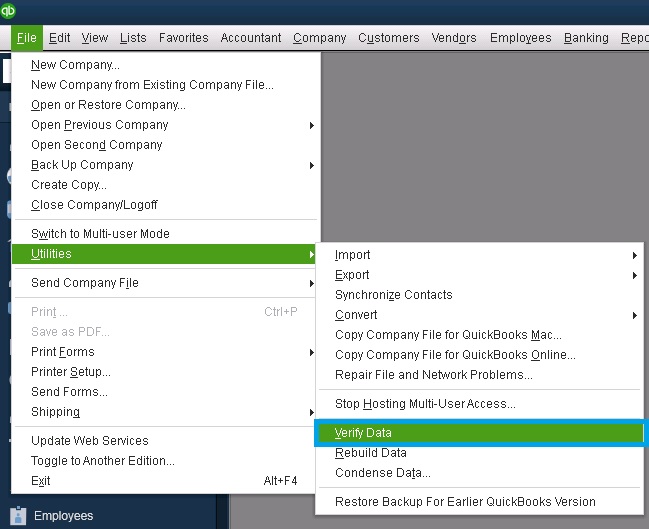
Solution 6: Consider Reinstalling QuickBooks Desktop
If the above troubleshooting steps fail to resolve your concern, the next step is to reinstall QuickBooks Desktop. A clean installation of QuickBooks desktop can help eradicate the QuickBooks Online Slow error.
Follow the steps below to perform a reinstallation of the QuickBooks desktop:
- Step: Download the Tool Hub App, or you can visit the official website of Intuit to download the QuickBooks Tool Hub application.
- Step: To complete the installation process, you are required to open the setup file saved in your system and proceed by following the on-screen instructions
- Step: You have to use the program to launch QuickBooks Tool Hub from your computer’s Desktop
- Step: Proceed by clicking on QuickBooks Desktop Clean Install Tool under the program installations issues heading
- Step: Use the utility option to install the latest version of the QuickBooks desktop application
- Step: Follow the instructions and reinstall the QuickBooks Desktop application on your Windows PC using the QuickBooks Clean Install Tool.
Solution 7: Consider Installing QuickBooks Diagnostic Tool
QuickBooks Diagnostic Tool is required for checking and fixing .NET Framework, MSXML, and C++ file errors on Windows computers. Resolving these errors helps with fixing issues with QuickBooks updates.
Follow the steps below to understand how to operate the QuickBooks Diagnostic Tool:
- Step: Visit the official website of Intuit and download the QuickBooks Install Diagnostic Tool
- Step: Save the file in your system
- Step: Check for QuickBooksDesktopinstallDiagnosticTool.exe on your Desktop
- Step: Double-click on the file and run it
- Step: To proceed, click on the “Yes” button when the licensing window appears
- Step: Click on the Proceed button and begin the scan
- Step: Once done with the scan, restart your computer
- Step: You might also be required to re-register or re-activate your QuickBooks software
- Step: Check if your Windows Operating system is up-to-date
- Step: Save it to your PC and close all the background processes related to QB
- Step: Launch the QB install Utility
- Step: Ensure that all the necessary extensions and components are updated, and then restart your PC
- Step: Once done with all the above processes, restart your PC to conclude the operation.
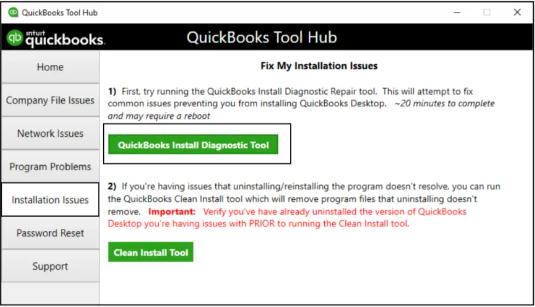
Solution 8: Check Compatibility of QuickBooks with the Installed Antivirus On your System
Few antivirus software may interfere with the functioning and compatibility of QuickBooks Online and cause QuickBooks online slow errors.
Follow the steps below to restrict or stop the impact of antivirus software on QuickBooks:
- Step: Press the Windows and R keys together to launch the command box
- Step: Type MSConfig and then press Enter
- Step: Reboot the machine and test the performance of the application
- Step: If testing is completed, repeat the process
- Step: Open the run box again by clicking WIndows+R and typing MSConfig
- Step: Opt for the standard configuration and click OK to confirm
- Step: Restart your computer and check if QuickBooks performance has improved.
Solution 9: Performing a Reset for .TLG File
Users can follow the below-mentioned steps to perform a reset.TLG file:
- Step: Open QuickBooks and click on a file
- Step: Prepare a backup for the corporate file
- Step: Click on Options and then select Desktop as the location of the File Backup
- Step: On the next screen, ensure that verification is completed, and then click OK
- Step: Click on Save It Now and then click Next.
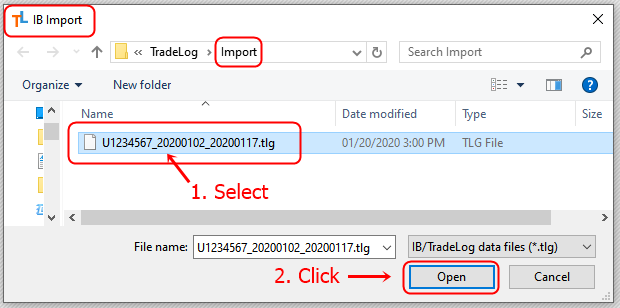
Solution 10: Defragmentation of the Disc Corporate File
Users can follow the below-mentioned steps to perform a defragmentation of the disc corporate file to fix QuickBooks Online Slow:
- Step: Users can generate a restore point with “Restore a Portable File,” as the corporate data is located in the system
- Step: You can attempt disc defragmentation after creating a portable file
- Step: Remember to refrain from defragmenting your disc in case you are using a SSD
- Step: Press the start button and select all programs
- Step: Select Accessories on the next screen, followed by selecting System Tools, and then choose the Defragmentation option
- Step: Conclude the step by following the on-screen directions to finish the process on your hard drive.
Solution 11: Monitoring and Examining the Speed of the UNC Path
- Step: Press Windows+E to check for the server name in the network location name
- Step: Once on the screen, you will see mapped discs highlighted in order as follows: X, Z, Y, and so on.
- Step: The server name concerned for this process is ().
- Step: Remember the server name and write the computer server name and shared folder name in the following format: ServerNameSharedFolderName.
- Step: Keeping a record of the pathname, select Open or Restore a Company File in QuickBooks
- Step: Select a company File and then click Next
- Step: Provide the UNC path in the file name feed, and press Enter
- Step: Select your company’s file from the concerned drop-down menu
- Step: Return to QuickBooks and check whether the QuickBooks Online Slow issue is resolved.
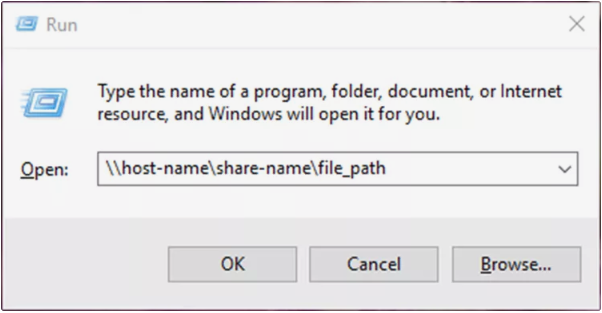
Solution 12: Working on Improving the Performance of QuickBooks Over Network
Users can verify QuickBooks performance in a Multi-user aspect and determine if any network issue causes QuickBooks Online’s slowness. If a performance issue is found, this concludes that more than one user is logged into the business folder.
In case QuickBooks is working slowly and just one user is logged in, you can follow the below-mentioned steps to resolve this issue:
- Step: By pressing the F2 key, launch the program
- Step: Search for the backup folder containing the company’s data
- Step: Make sure that there are no existing users with the QuickBooks account
- Step: Open My Computer, locate the file path, and right-click on it. Followed by this, perform QBW enlargement
- Step: Create a duplicate file and copy and paste it on your computer
- Step: Open QuickBooks and perform a restore for the business file that was saved on your system
- Step: Now launch QuickBooks and check if it is functioning slowly.
Solution 13. clear the cache of your regular browser
Your browser’s cache stores files to help websites load faster during future visits. However, these files can become outdated and may cause QuickBooks online slow to load. Clearing your cache usually resolves most problems. If issues persist, clearing cookies specific to Intuit can help, especially when using QuickBooks online.
Note: Only clear Intuit-specific cookies to avoid resetting other site preferences.
Steps to Clear Intuit-Specific Cookies in Google Chrome:
- Open Google Chrome and click the three-dot menu icon in the top-right corner.
- Go to Settings.
- Select Privacy and security.
- Click on Cookies and other site data.
- Choose See all cookies and site data.
- In the search bar, type “intuit” to find the relevant cookies.
- Click Remove all shown or use the trash can icon to delete the Intuit cookies.
- Restart Chrome for the changes to take effect.
Note – When to Contact Intuit Support:
- Performance issues persist after troubleshooting.
- You suspect data corruption or system errors.
- Unusual errors keep appearing.
How to Speed Up QuickBooks Online?
Here’s how to boost its performance:
Method 1: Keep QuickBooks & Your Browser Updated – Always use the latest version for optimal speed.
Method 2: Check Your Internet Speed – A slow connection can affect performance. Run a speed test to ensure stability.
Method 3: Clear Cache & Cookies – Regularly remove stored browser data to prevent slowdowns.
Method 4: Close Background Apps – Free up system resources by shutting down unnecessary programs.
Method 5: Clean Up Company Data – Remove outdated customers, vendors, and items to streamline your database
Method 6: Ensure System Compatibility – Verify that your computer meets QuickBooks Online’s requirements.
Method 7: Avoid Incognito Mode – It may impact performance and cause unexpected issues.
Method 8: Check for Data Issues – Use QuickBooks File Doctor to detect and fix errors.
Method 9: Consider an Upgrade – A higher-tier QuickBooks plan may offer better speed and features.
Following these steps should significantly improve your QuickBooks Online experience!
System Requirements for Running QuickBooks Online Smoothly
System requirements to run QuickBooks Online properly [Operating Systems/ Internet Speed/ Memory].
| Windows PC | Mac | Web Browsers | Internet Speed | Mobile Browsers | RAM | Screen Resolution | Other Requirements |
|---|---|---|---|---|---|---|---|
| Windows 10, Intel Core i5 or comparable processor (2015 or newer) with at least 4 GB of RAM. (recommended) | OS X “Big Sur” 11.1 or newer. (recommended) | Google Chrome: version 78 or newer | 1.5 Mbps. (recommended) | Android smartphones and tablets: Nougat 7.1.1 or newer, Chrome browser (supported browser) | 4 GB or above | 1440 x 900 or above (minimum) | Software for Processing Document: For Windows, users must have installed Adobe Reader 11.0 or higher. |
| Windows 10, Intel Core i3 or a comparable processor (2013 or newer) with at least 2 GB of RAM. (minimum) | OS X El Capitan 10.11 or newer. (minimum) | Samsung: version 10 or newer | 3 Mbps or higher. (minimum) | iPhone / iPad, OS 11.1 or newer, Safari browser. (supported browser) | – | – | Printing of Documents: To print necessary documents, users must have installed Laser-jet or Ink-jet printers. |
| – | – | Mozilla Firefox: version 76 or newer. | – | Microsoft Surface, Microsoft Edge (supported browser) | – | – | – |
| – | – | Safari: version 12 or newer (Mac only) | – | – | – | – | – |
| – | – | Opera: version 68 or newer | – | – | – | – | – |
| – | – | Microsoft Edge: version 79 or newer | – | – | – | – | – |
Why Is My QuickBooks Online Slow After an Update?
Users may experience slower performance, delayed loading times, or unresponsive features, after updating QuickBooks Online.
Common Causes of Slow Performance After an Update:
- Browser Cache & Cookies – Old cached data can interfere with QuickBooks’ performance.
- System Compatibility Issues – Updates may require more system resources or updated software.
- Internet Speed & Connectivity – Slow internet can cause lagging when loading QuickBooks Online.
- Third-Party Integrations – Connected apps may conflict with the new update, affecting performance.
- Server Downtime or Maintenance – QuickBooks Online servers may be experiencing temporary issues.
How to Fix QuickBooks Slow Performance After an Update?
- Clear Cache & Cookies – Remove stored browser data to refresh QuickBooks Online.
- Use a Supported Browser – Google Chrome or Mozilla Firefox work best for QuickBooks Online.
- Check Internet Speed – Ensure you have a stable connection with adequate bandwidth.
- Disable Unused Extensions – Browser extensions can slow down QuickBooks’ response time.
- Update System & Browser – Ensure your device and browser are up to date for optimal performance.
- Try a Different Device or Network – Check if the issue persists on another system or network.
- Contact QuickBooks Support – If the problem continues, reach out to QuickBooks for assistance.
By following these steps, you can improve QuickBooks Online speed and ensure a smooth experience after an update.
Best Browsers for QuickBooks Online Performance
Using the right browser can significantly improve the speed and performance of QuickBooks Online.
Here are the best browsers to ensure smooth operation:
| Browser Name | Google Chrome (Recommended) | Mozilla Firefox | Microsoft Edge | Safari (For Mac Users) |
|---|---|---|---|---|
| Why is it best for QuickBooks Online? | Offers the best compatibility with QuickBooks Online | A reliable alternative to Chrome with strong security features | Optimized for Windows users and integrates well with QuickBooks Online | Best choice for QuickBooks Online on macOS |
| – | Supports extensions and updates frequently for better security and speed | Works well with QuickBooks Online but may require occasional updates | Improved speed and efficiency compared to older versions of Internet Explorer | Faster processing and better battery efficiency |
| – | Allows multiple tabs without slowing down performance | Faster performance when using fewer extensions | Runs well with fewer system resources | Limited extension support compared to Chrome and Firefox |
Tips to Improve Browser Performance
- Keep Your Browser Updated – Ensure you’re using the latest version to avoid compatibility issues.
- Clear Cache and Cookies – Regularly clear browsing data to prevent slowdowns.
- Disable Unnecessary Extensions – Too many add-ons can slow down QuickBooks Online.
- Use Incognito/Private Mode – Helps troubleshoot loading issues without interference from extensions.
By choosing the right browser and optimizing settings, you can ensure a faster, smoother QuickBooks Online experience.
QuickBooks Online Reviews 2024 – Speed and Reliability
QuickBooks Online (QBO) is a popular cloud-based accounting solution, but many users have reported concerns about its speed and performance. In 2024, reviews highlight both strengths and weaknesses when it comes to speed and reliability.
| Pros of QuickBooks Online | Cons of QuickBooks Online |
|---|---|
| Cloud Accessibility – Access QuickBooks from anywhere with an internet connection. | Slow Loading Times – Users experience delays when opening reports or processing transactions. |
| Regular Updates – New features and security patches improve functionality. | Frequent Freezing & Lagging – Performance drops, especially during peak hours. |
| Integration Capabilities – Seamlessly connects with banking, payroll, and third-party apps. | Browser Dependency – Some users report QBO runs slower on certain browsers. |
| Multi-User Collaboration – Allows teams to work together in real time. | Unstable Connectivity – Occasional server downtimes and syncing issues |
How to Improve QuickBooks Online Speed?
- Use Google Chrome or Mozilla Firefox for better performance.
- Clear cache and cookies regularly to prevent lag.
- Check internet speed—a stable and fast connection enhances efficiency.
- Disable unnecessary browser extensions that may interfere with QBO.
- Optimize company file size by archiving old transactions.
Conclusion
To enhance QuickBooks Online performance, it’s essential to regularly clear your browser’s cache and cookies and ensure you are using the latest version of Chrome. Additionally, check your internet connection for stability and minimize any excessive firewall restrictions. By addressing these issues, users can enhance speed, ensure seamless financial operations, and prevent workflow disruptions, ensuring QuickBooks Online performs efficiently and meets your business needs.
Frequently Asked Questions
What is Causing QuickBooks Online to Freeze?
The various reasons why QuickBooks Online is frozen are:
- Slow internet
- Large company file
- System cache
- Insufficient memory
- Older or corrupted caching files
How Do I Clear the Cache in QuickBooks Online?
To clear the cache in QuickBooks Online, follow these simple steps:
- Open browser (eg. Google Chrome) and click on the three dots (⋮) in the top-right corner.
- Select Settings from the dropdown.
- Go to Privacy and security.
- Click on Cookies and other site data.
- Select See all cookies and site data.
- In the search bar, type “intuit” and then click Remove all shown.
- Finally, restart Chrome to apply the changes.
Why is QuickBooks Online Currently So Slow Today?
QuickBooks’ slow performance on certain days is because of minor server issues fixed within an hour or so. Relaunch QuickBooks, and if the issue is not resolved, try opening it from a different system.
How to Fix QuickBooks Running Slow After an Update?
To fix QuickBooks running slow on your computer, follow the below measures:
- Install a faster internet source
- Consider appropriate server and device management
- Create a backup
- Keep a check for corrupted or damaged files.
Why Isn’t QuickBooks Working on Google Chrome?
If QuickBooks isn’t working on Google Chrome, it’s likely due to cache issues, an outdated browser, conflicting extensions, internet problems, or firewall restrictions. Begin by cleaning cache and cookies from the browser.
Common Causes:
- Cached data & cookies – Corrupt files can prevent QuickBooks from loading properly.
- Outdated browser – Older versions of Chrome may not support QuickBooks features.
- Conflicting extensions – Some browser extensions can interfere with QuickBooks.
- Internet issues – A slow or unstable connection can disrupt access.
- Firewall settings – Restrictions may block QuickBooks from connecting.
- Login issues – Previous session errors or incorrect credentials may prevent sign-in.
Quick Fixes:
- Clear cache & cookies – Go to Chrome settings and clear browsing data.
- Update Chrome – Make sure you’re using the latest version.
- Try incognito mode – Opens a fresh session without stored data or extensions.
- Disable extensions – Turn off extensions temporarily to see if one is causing issues.
- Check internet connection – Ensure your connection is stable.
- Review firewall settings – Allow QuickBooks access if blocked.
- Restart Chrome – A simple restart can resolve temporary glitches.
Best Practices to Prevent QuickBooks Online from Slowing Down
Dealing with slow performance in QuickBooks Online can be frustrating, but with the right strategies, you can keep it running efficiently.
Follow these best practices to optimize speed and improve performance:
1. Optimize Your Browser
- Use a supported browser like Google Chrome, Mozilla Firefox, or Microsoft Edge for the best experience.
- Regularly clear cache and cookies to remove outdated stored data.
- Enable hardware acceleration in browser settings to enhance processing speed.
- Avoid running multiple heavy applications or too many open browser tabs while using QuickBooks.
2. Improve Internet Connection
- Ensure you have a stable, high-speed internet connection (at least 3 Mbps for optimal performance).
- Use a wired connection instead of Wi-Fi to reduce lag.
- Restart your modem/router periodically to refresh network speed.
3. Manage QuickBooks Data Efficiently
- Minimize data overload by archiving old transactions or using a data condensing tool (for QuickBooks Desktop).
- Remove unused accounts, customers, and vendors to streamline system response.
- Limit the number of open reports, as they can slow down system processing.
4. Keep QuickBooks & Your System Updated
- Always use the latest version of QuickBooks Online to access performance improvements and bug fixes.
- Keep your operating system and browser updated to maintain compatibility and security.
5. Avoid Multi-User Overload
- If multiple users are accessing QuickBooks simultaneously, assign specific tasks to prevent system overload.
- Use a dedicated server or a cloud hosting service for smoother multi-user performance.
6. Disable Unnecessary Extensions & Add-Ons
- Turn off unneeded browser extensions while using QuickBooks Online.
- Limit third-party app integrations that may interfere with processing speed.
7. Log Out & Restart Regularly
- Sign out when not using QuickBooks to free up system memory.
- Restart your computer periodically to clear background processes and improve performance.
QuickBooks Online vs. QuickBooks Desktop: Speed Differences
| QuickBooks Online (QBO) | QuickBooks Desktop (QBDT) |
|---|---|
| Cloud-based; speed depends on internet quality. | Runs locally; speed depends on hardware and network. |
| Can slow down with browser cache issues or high traffic. | Handles large data files better but may slow in multi-user mode. |
| Auto-updates ensure smooth performance. | Requires manual updates that can impact performance. |
Which is Faster
- QBO is better for remote access but may lag due to internet issues.
- QBDT is faster for large transactions if the system is optimized.
Speed Optimization Tips
- Use fast, stable internet for QBO.
- Upgrade hardware for QBDT.
- Clear cache and close background apps.
Bottom Line: Choose QBO for accessibility and QBDT for high performance
Does Using Incognito Mode in Browsers Affect QuickBooks Online?
Using incognito mode in browsers can affect QuickBooks Online QBO performance. Since every new session in incognito mode reloads all site elements from scratch, the initial page load will be slower. However, after the first page loads, subsequent pages within the same session should load faster. For better performance, it’s recommended to use a regular browser mode.
Disclaimer: The information outlined above for “How to Fix QuickBooks Online Running So Slow?- Performance Issue” is applicable to all supported versions, including QuickBooks Desktop Pro, Premier, Accountant, and Enterprise. It is designed to work with operating systems such as Windows 7, 10, and 11, as well as macOS.
